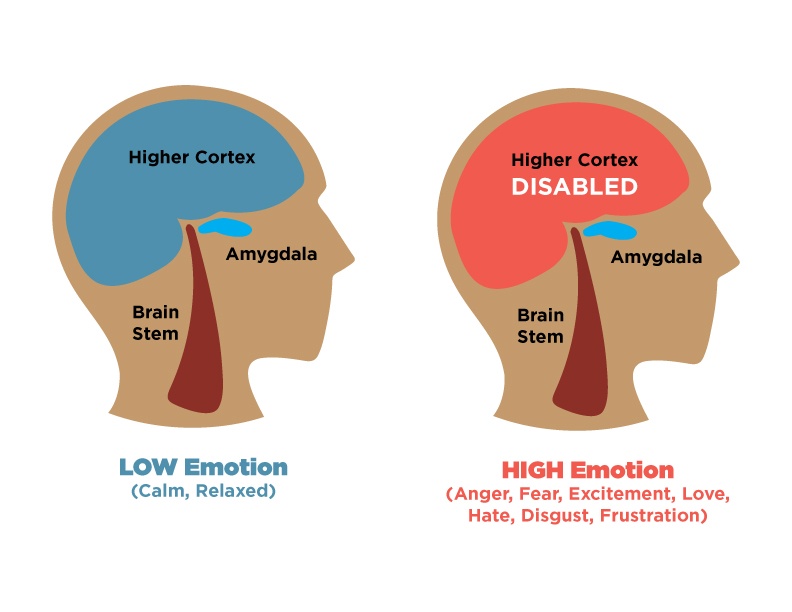In a recent online training group discussion I participated in, we were asked to comment on personal leadership experiences that had been positive and negative. In considering the positive experiences, typical words or phrases used were:
- believed in me / encouraged me / supportive
- made me feel relevant / empowered me / autonomy
- trustworthy / transparent / walked his talk / integrity / not perfect
- nice / enthusiastic / positive / optimistic / inspired /energized me
- compassionate / empathetic / gave constructive feedback
- challenged me to be my best self
- provided direction / made me feel included or important
- treated us all the same / fair / recognized or appreciated effort
- listened actively
Words or phrases that exemplified negative leadership experiences were:
- short-tempered / moody / a bully / always stressed / always negative
- a micro-manager / undermined my efforts
- created a toxic work environment (the ‘toxic’ word was used repeatedly)
- brought out the worse in me (i.e. impacted on mental or physical well-being)
- a poor team player / too autocratic
- had poor interpersonal skills e.g. listening; communications
As I reflected on these contributions, it struck me that while the context for the exercise had been in relation to leadership, it could also apply across many group environments in life: be it at work, in a family, a club, a school, a relationship and so on. What would your own choice of words be for good or bad leadership experience that you have encountered? Better still, what choice of words would others use to describe you?
Experts such as behavioral scientists and psychologists, have done a great job in helping us to better understand our behavioral tendencies and how to navigate them in our relationships with others to ensure more positive and effective outcomes for us and those we impact. Personality type assessment tests have provided a helpful lens through which to better understand our own paradigms and other personality types that may differ to our own. Personally, I have tried out a few like the Myers Briggs Indicator Type, the Enneagram and several others which have all been insightful to my self-awareness in helping me leverage my strengths and tackle important gaps for my personal growth. The only general concern I’ve have ever had with such assessments is when the tests results become a replacement to any effort in getting to know someone through simple conversation. For example, where test results are inappropriately used to ‘ring-fence’ an individual’s ability from doing something different or new, just because it does not ‘fit their type’. I recently listened to a radio podcast on Emotional Intelligence, where the guest speaker who was about to commence a new role as a hospital chief, enthusiastically announce that she would be making sure that all her team completed a personality assessment immediately, so that she would know what kind of team she had. I would suggest that there is more to finding that out about a person than just taking an assessment test.
Still sticking with Emotional Intelligence, which is a topic that first appeared in 1964, but was popularized by Daniel Goleman in 1995, – it does a good job in looking beyond being self-aware to how well we understand others and navigate those relationships in a way that ensures a productive end. Emotions are the key focus as powerful energy sources that when generated as happiness, sadness, anger and so on, will translate into actions that could be good for us or might otherwise cause regret. Goleman mentions four components: Self-Awareness, Self-Management, Social Awareness and Relationship Management which are split between personal and relational competencies. Typical questions to each component are below.
Self-Awareness:
- What are my strengths and weaknesses?
- Does my perception of myself align with how others see me?
Self-Management:
- What can I do to manage myself under stress?
- How do my values shape my words and actions?
- When do I take the initiative to solve problems?
Social-Awareness
- Do you know how to accurately read other’s emotions both individually and in group settings?
- Can you anticipate the feelings needs and concerns of others?
- How do you cultivate your appreciation of diverse thoughts and experiences?
Relationship Management
- How do you help others achieve their highest potential?
- Can you identify the difference between healthy and toxic conflict?
- When do you initiate change? How do you support people’s reaction to change?
A truth is that no-one can be 100% emotionally intelligent because stuff happens and our lives are in a constant dynamic state. Nothing truly stays the same – second to second.
Self-Management & The Amygdala Attack
Looking back at the training feedback mentioned at the start of this article regarding the positive and negative leadership experiences, personality type and situation aside, I would suggest that a key difference between the leader creating a positive experience and the one providing a negative experience is ‘self-control’. It is that inability to regulate or control a challenging emotion like anger; sadness or fear say, that gets translated into words, actions or feelings that end up being detrimental rather than productive. Note that having self-control in this context is not the same thing as not expressing your difficult emotions at all. All emotions have a role in impacting the regulation of our brain and hormonal functions. Can you imagine someone only ever expressing happiness in every situation? That would be really strange don’t you think? What matters more is our ability to manage how we express ourselves, so that we are not slaves to our emotions.
 Image from Giants of the Earth Heritage Center
Image from Giants of the Earth Heritage Center
There is a science to what happens between our brain, emotions and hormones – especially when we are upset or feel threaten. It is called the Amygdala Hijack. When it occurs, our cognitive functioning (thinking brain) is dulled and we ‘can’t think straight’. We act first, then possibly regret later. Check out this short video talk about the Amygdala and it’s critical role in how our emotions get expressed. The points about stimulus association and adaptive behaviours are insightful, which effective means that we can learn to manage the more negative expressions of our emotions so that we can have more productive and healthier relationships. It’s about having a mind strategy and it can work. Even the phrase ‘choose your battles’, is a mind strategy. So, the truth is that the leader giving the negative experiences is unlikely to be negative in all aspects of their day or life (unless there are serious problems of course). Vice versa for the leader who gives the positive experiences. The experts would tell us that the more positive experience-giving leader just has better self-control (or impulse control) and is therefore more emotionally intelligent.
Truthfully though, emotions being the very powerful energy source that they are, can be hard to manage. So here are some helpful tips for your consideration:
- Know Thy Self. If you are brave enough, get yourself some 360 degree feedback to know how you are doing and where there are gaps that need to be improved on. Compliment that with a personality type assessment test to give some structure to that feedback. For Emotional Intelligence, the Emotional and Social Competency Inventory (ESCI) is also a consideration.
- Manage the Stress. In today’s busy world, this is the biggest culprit. Make time to de-stress daily. Quiet time, yoga, have a chat, take a walk and reading are all great examples.
- Health Is Wealth. Watch your energy inflows (calorie intake) and output (physical activity). These have a significant impact on your health and mood.
- Sleep Hygiene. The National Sleep Foundation recommends at least 7 hours of sleep. Your cognitive ability and toxin levels are negatively impacted if you sustain poor sleeping habits over time.
- Get Support If You Need To. If you recognise that you need help possibly in a coaching or medical capacity for example, then get that.
#TalkLearnGrow


